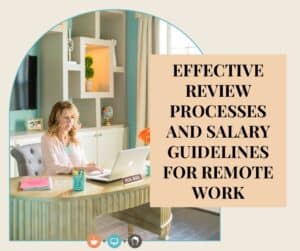The Hidden Costs of a Bad Hire for Small Business Owners

Hiring the right person can be one of the most rewarding decisions a small business owner makes. But hiring the wrong person? That can be one of the most expensive—and exhausting—mistakes. Many small business owners handle hiring on their own, without the support of an HR department or recruiter. Often, they’re in a hurry, trying to fill a position quickly to keep things moving. But rushing the process or hiring based on instinct alone can lead to costly consequences.
While the most obvious cost of a bad hire is financial, the ripple effects touch every part of your business—from lost time and productivity to damaged team morale and even the personal well-being of the owner.
The Financial Fallout: It Adds Up Fast
Let’s start with the numbers. According to the U.S. Department of Labor, the average cost of a bad hire can be as much as 30% of that employee’s first-year salary. That means if you hire someone at $60,000 per year and they don’t work out, you’re potentially out $18,000—and that’s a conservative estimate.
Why so high? Think about all the direct and indirect expenses that go into hiring: placing job ads, reviewing resumes, conducting interviews, onboarding, training, and then managing performance issues. If that person doesn’t last or underperforms, you’re not just out their salary—you’re also on the hook for replacing them. That means repeating the entire hiring process, which doubles your costs and delays your progress even further.
For small business owners operating on lean budgets and tight margins, those dollars aren’t just numbers on paper—they’re real investments that could have been used for growth, marketing, or technology upgrades.
Time: The Most Undervalued Casualty
If money is the obvious cost of a bad hire, time is the sneaky one that quietly drains your business. When a hire doesn’t work out, it creates a time suck on multiple levels.
You may find yourself spending hours trying to coach or train them, cleaning up mistakes, or even doing their work yourself just to meet deadlines. And when it becomes clear they’re not a fit, the process of letting them go, handling exit paperwork, and restarting your search only adds to the delay.
Every minute you spend managing the wrong hire is a minute you’re not spending on revenue-generating activities or strategic planning. As a small business owner, your time is arguably your most valuable resource—and losing it to a bad hire is like throwing away momentum.
Damaging Your Team From the Inside
Bad hires don’t just affect your workload—they can affect your entire team dynamic. Small businesses often operate like families: tight-knit, highly collaborative, and dependent on mutual trust. When someone new joins the team and doesn’t pull their weight, it creates friction and frustration.
Your best employees may feel like they’re carrying the load, leading to resentment. If the bad hire is rude, negative, or uncooperative, morale can quickly plummet. In some cases, a single toxic team member can drive away your top performers—costing you even more in long-term talent loss.
Hiring mistakes also impact how your team views your leadership. Employees may begin to question your judgment, especially if the problem team member lingers too long. That erosion of trust can take months to rebuild, even after the issue is resolved.
The Personal Toll No One Talks About
What’s often left out of the conversation is the emotional and personal toll a bad hire can take on the business owner. Many small business owners feel a deep sense of responsibility for every person on their team—and when a hire goes wrong, they internalize it.
There’s the guilt of making a bad call, the stress of difficult conversations, and the anxiety of making another hiring mistake. You might lie awake at night wondering how to fix the situation, dreading the confrontation, or worrying about how your team is coping.
All of that adds up to mental fatigue and emotional burnout. And let’s face it—when you’re overwhelmed and emotionally drained, it’s hard to show up as your best self for your business, your customers, or your family.
Why Small Business Owners Are Especially Vulnerable
Unlike larger companies with HR departments, small business owners are often winging it when it comes to hiring. Many are making these decisions in isolation, without a second opinion, using job descriptions they’ve copied from the internet, and relying on gut instincts in interviews.
They may also hire out of urgency—because a client just signed on, or an employee gave two weeks’ notice—and skip critical steps like checking references, testing skills, or thoroughly evaluating fit.
When the pressure is high, the temptation is to fill the seat as fast as possible. But in many cases, hiring no one is better than hiring the wrong one.
How to Avoid the Hiring Trap
The good news is: a bad hire doesn’t have to be your reality. Here are a few smart strategies to help you avoid falling into the trap:
- Take your time. Rushing to hire often leads to regrets. It’s worth pausing to make sure the person is truly the right fit.
- Use skills-based assessments. Don’t rely on resumes alone. Give candidates a small task or test project to see how they think and work.
- Check references. A quick call can reveal a lot about past performance and attitude.
- Bring someone else into the interview. A second perspective can help you spot red flags you might miss.
- Use trusted hiring platforms. Services like HireMyMom.com specialize in vetting talent, making it easier to hire with confidence and peace of mind.
For more insights on the importance of thorough hiring processes, check out this blog: Implementing Effective Hiring Protocols in Your Small Business.
Final Thoughts
Hiring is one of the most important—and riskiest—decisions a small business owner can make. A bad hire doesn’t just cost you money. It costs you time, productivity, culture, and sometimes even your peace.
But with the right approach, tools, and support, you can hire smarter—and build a team that supports your growth, shares your values, and makes your business stronger every day.
And better yet, HireMyMom’s Concierge Service can handle all the stress of making the right hire with our experienced HR professionals taking all of the angst and worry out of making these difficult hiring decisions. You can learn more about our Concierge service here or book a free consult here.
Ready to make your next hire your best one yet? Visit HireMyMom.com and start your search today.








